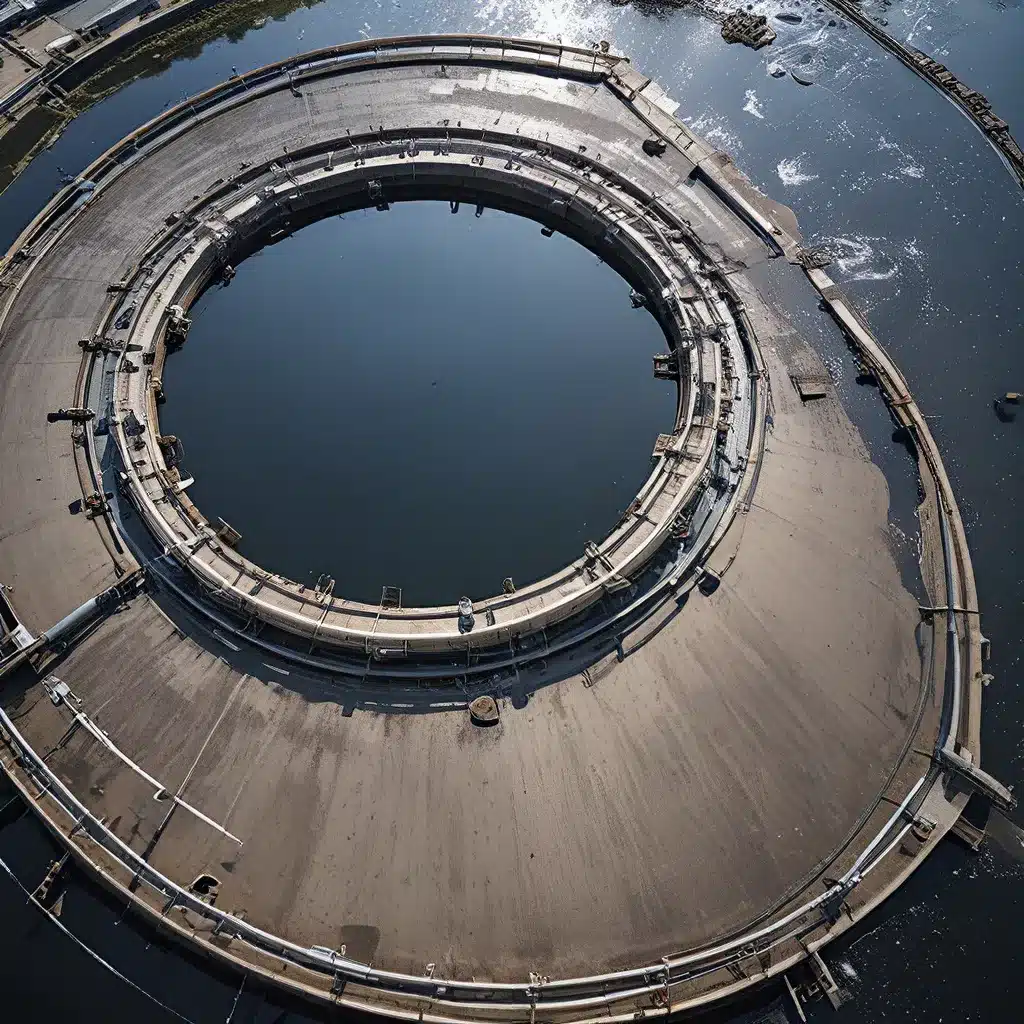
The Paradigm Shift Towards Sustainability
Wastewater – a term that once conjured images of contamination and environmental burden – is now at the heart of a transformative shift in our approach to resource management. Welcome to the world of the circular water economy, where we’re redefining wastewater as a valuable commodity rather than a problem to be solved.
It wasn’t long ago that the predominant mindset was to simply treat wastewater and dispose of it. But as our collective consciousness has awakened to the pressing need for sustainability, we’ve realized that this linear “take-make-waste” model is woefully inadequate. The circular economy has emerged as a game-changing paradigm, one that challenges us to rethink our relationship with resources and waste.
Unlocking the Treasure Trove of Wastewater
When we shift our perspective, wastewater reveals itself as a veritable treasure trove of untapped potential. Rather than viewing it as something to be discarded, we can now see it as a source of renewable energy, essential nutrients, and – perhaps most importantly – recycled water. Let’s dive into the myriad ways we can transform this once-forgotten resource into a cornerstone of sustainability.
Water Reclamation: Closing the Loop
One of the most immediate and impactful applications of the circular water economy is water reclamation. Traditional wastewater treatment systems often result in a significant loss of water that could otherwise be recovered and reused. By employing advanced purification technologies, we can transform this wastewater into high-quality, fit-for-purpose water for a variety of non-potable applications.
Imagine a world where we no longer rely solely on fresh water sources for irrigation, industrial processes, or even groundwater replenishment. This reclaimed water can help us close the loop, reducing our strain on limited freshwater supplies and ensuring a more sustainable water future.
Energizing the Future: Wastewater-to-Biogas
Wastewater doesn’t just contain water – it’s also rich in organic matter that can be harnessed to generate renewable energy. Through processes like anaerobic digestion, we can convert this organic material into biogas, a valuable fuel source that can be used to power our homes, businesses, and even our vehicles.
This innovative approach not only reduces our reliance on fossil fuels but also helps us become more energy self-sufficient. By tapping into the inherent energy within wastewater, we’re creating a sustainable cycle that benefits both the environment and our wallets.
Nutrient Harvesting: Closing the Loop on Fertilizers
Wastewater is teeming with essential nutrients like nitrogen and phosphorus – elements that are vital for plant growth but are often extracted through resource-intensive mining practices. By recovering these nutrients from wastewater, we can create nutrient-rich fertilizers that can be used to replenish the soil, completing the nutrient cycle.
This circular approach not only reduces our need for virgin materials but also helps mitigate the environmental impact of traditional fertilizer production. It’s a win-win scenario that supports both sustainable agriculture and a healthier planet.
Embracing the Circular Water Economy: A Global Movement
The shift towards a circular water economy is not just a local phenomenon – it’s a global movement gaining momentum around the world. From Singapore’s innovative NEWater initiative to the HAMBURG WATER Cycle project in Germany, visionary cities and industries are leading the charge in transforming wastewater into a valuable resource.
In Singapore, for example, the NEWater project purifies wastewater to produce high-grade reclaimed water, ensuring water security in a water-scarce region. Meanwhile, in Hamburg, Germany, the HAMBURG WATER Cycle project exemplifies the recovery of energy, phosphorus, and other valuable components from wastewater, showcasing the multifaceted benefits of embracing circular economy principles.
Even in the brewing industry, forward-thinking companies are harnessing the potential of wastewater for biogas production, reducing operational costs while fostering sustainability.
Championing Sustainability: A Call to Action
As we witness the transformative power of the circular water economy, it’s clear that the time for action is now. To truly harness the full potential of this paradigm shift, we must come together as a collective – researchers, policymakers, industry leaders, and concerned citizens – to drive innovation, advocate for change, and raise awareness.
Fostering Innovation and Collaboration
The key to unlocking the true potential of the circular water economy lies in the development and implementation of advanced technologies. By fostering cross-sector partnerships and collaboration, we can accelerate the progress of innovative solutions that extract maximum value from wastewater.
Advocating for Supportive Policies
To truly catalyze the transition towards a circular water economy, we need supportive policies that incentivize and prioritize resource recovery and reuse. Through advocacy and engagement with policymakers, we can shape the regulatory landscape to create an environment that fosters the adoption of these sustainable practices.
Raising Awareness and Spreading the Word
Finally, we must work tirelessly to spread the message of the circular water economy, inspiring others to join the movement. By raising awareness about the benefits of this transformative approach, we can empower individuals, communities, and organizations to become champions of sustainability.
The Future is Circular
As we stand at the crossroads of environmental stewardship and resource efficiency, the circular water economy presents a tantalizing pathway forward. By redefining our relationship with wastewater, we can unlock a future where this once-neglected resource becomes a cornerstone of sustainability, supporting our energy needs, nourishing our soils, and securing our water supplies.
The journey may not be simple, but the rewards are undeniable. Join us as we embark on this transformative quest, shaping a tomorrow where wastewater is no longer a burden, but a source of boundless opportunity. The future of our water resources – and our planet – depends on it.


